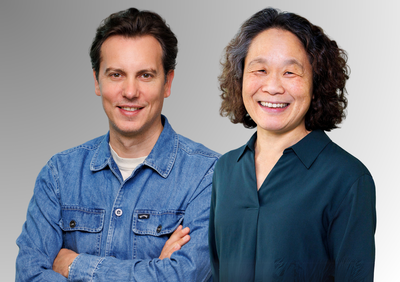Two consortiums with IMBA participation awarded HORIZON-MSCA Doctoral Network funding
The Marie Sklodowska-Curie Action Doctoral Networks initiative has funded two new Doctoral Network consortiums including the groups of Elly Tanaka and Nicolas Rivron at IMBA. The Doctoral Networks initiative brings together universities, research institutions and infrastructures from Europe and beyond to train highly talented PhD candidates. The new consortiums will involve the selected candidates in cutting-edge research projects.
The lab of Elly Tanaka will be part of the DANIO-ReCODE program, which brings together 15 research laboratories at renowned EU and UK scientific institutions to unravel the gene regulatory mechanisms of heart, brain, and eye regeneration. The project aims to use animal models of regeneration, such as zebrafish and axolotl, to uncover the molecular mechanisms that drive their incredible regenerating ability, as well as to understand why this ability is severely limited in humans. For this, the partners will integrate state-of-the-art genomics, computational, and data visualization techniques. The program aims to train 15 doctoral students and turn them into interdisciplinary experts in computational and developmental biology, providing comprehensive training that spans experimental work, bioinformatics, visualization, and industry application. The students will make meaningful contributions to the project’s goals while developing their scientific profile. Their findings could pave the way for the development of new cellular therapies to boost the potential for tissue regeneration after injury.
The lab of Nicolas Rivron will be part of the IMPLANTEU program, which unites 15 European entities including universities, research institutions and pharmaceutical start-ups. The objective of this project is to study human embryo implantation in the uterus and the reasons why implantation often fails, leading to early pregnancy loss. The project members will combine their expertise in reproductive and stem cell biology, medicine, physiology, ethics and law, and cutting-edge technologies such as stem cell-based embryo models, organoids, machine learning, and organ-on-chip technology. Their ultimate aim is to develop a molecular blueprint of human implantation in health and disease that can serve as a basis to improve reproductive health. The cutting-edge program will train 13 doctoral candidates through their participation in research activities, the possibility of secondments in academic and industrial environments, access to horizontal and focused courses, and interactions with stakeholders.
The objective of Doctoral Networks is to implement doctoral programs through the partnership of organizations from different sectors across Europe and beyond to train highly skilled doctoral candidates, stimulate their creativity, enhance their innovation capacities and boost their employability in the long-term. The program is open to international consortia of universities, research institutions, businesses, SMEs and other non-academic organizations, which must each recruit at least one doctoral candidate. All doctoral candidates are provided with a living and mobility allowance, as well as funding for research, training and networking activities.
